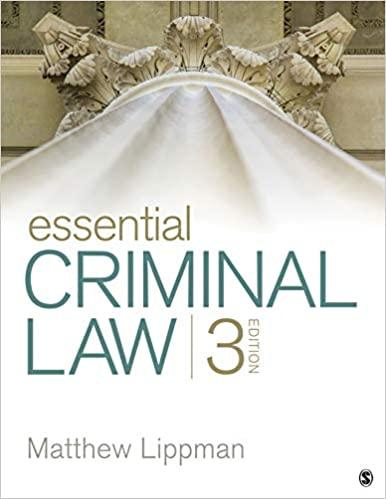Question
Question 21 1pts These do not form part of the outstanding capital stock: (Phil CPA, 92-2; 96-1) Group of answer choices Redeemable Shares Treasury Shares
Question 21
1pts
These do not form part of the outstanding capital stock: (Phil CPA, 92-2; 96-1)
Group of answer choices
Redeemable Shares
Treasury Shares
Bonus Shares
Founder's Shares
Flag this Question
Question 22
1pts
A corporation is a legal or juridical person with a personality separate and apart from its individual stockholders or members and from any other legal entities to which it may be connected.
Group of answer choices
Doctrine of Limited capacity
Doctrine of Piercing the Veil of Corporate Entity
Doctrine of Corporate Entity
Doctrine of Limited Liability
Flag this Question
Question 23
1pts
The following are some of the requisites of a de facto corporation. Choose the exception: (Phil CPA, 86-2; 87-2-M)
Group of answer choices
Assumption of corporate power
Valid law under which it is incorporated.
Attempt to incorporate
No certificate of registration
Flag this Question
Question 24
1pts
The corporation's separate juridical personality may be disregarded when the corporate identity is used to defeat public convenience, justify wrong, protect fraud, or defend crime.
Group of answer choices
Doctrine of Corporate Entity
Doctrine of Piercing the Veil of Corporate Entity
Doctrine of Limited Liability
Doctrine of Limited capacity
Flag this Question
Question 25
1pts
Corporations governed by special laws have to submit a recommendation from the appropriate government agency to the effect that such articles are in accordance with law. These include the following, except:
Group of answer choices
Preneed companies
banks, banking and quasi-banking institutions,
pawnshops
insurance companies
telecommunication companies
Flag this Question
Question 26
1pts
The following constitutional guarantees are applicable to corporations, except:
i. right against unreasonable searches and seizure
ii. due process clause
iii. right against self-incrimination
iv. freedom to travel
Group of answer choices
i, ii, iii, iv
iii, and iv
i and iv
iv only
Flag this Question
Question 27
1pts
The Catholic Church of the Philippines may be regarded as an example of:
a. Stock corporation
b. Corporation sole
c. Corporation by prescription
Group of answer choices
Both of a and c
a, b, and c
Both of a and b
Both of b and c
Flag this Question
Question 28
1pts
The amendment of the Articles of Incorporation shall take effect upon their approval by the Commission or from the date of filing with the said Commission if not acted upon within ____________from the date of filing for a cause not attributable to the corporation.
Group of answer choices
twelve (12) months
three (3) months
one (1) month
six (6) months
Flag this Question
Question 29
1pts
X Corp. operates a call center that received orders for pizzas on behalf of Y Corp. which operates a chain of pizza restaurants. The two companies have the same set of corporate officers. After 2 years, X Corp. dismissed its call agents for no apparent reason. The agents filed a collective suit for illegal dismissal against both X Corp. and Y Corp. based on the doctrine of piercing the veil of corporate fiction. The latter set up the defense that the agents are in the employ of X Corp. which is a separate juridical entity. Is this defense appropriate?
Group of answer choices
No, the real employer is Y Corp., the pizza company, with X Corp. serving as an arm for receiving its outside orders for pizzas.
Yes, it is not shown that one company completely dominates the finances, policies, and business practices of the other.
No, since the doctrine would apply, the two companies having the same set of corporate officers.
Yes, since the two companies perform two distinct businesses.
Flag this Question
Question 30
1pts
A corporation, the sole purpose of which is to invest its capital in a specific property and afterwards consume that property or extract its value at a profit is called:
Group of answer choices
Open corporation
Quasi corporation
Wasting asset corporation
Eleemosynary corporation
Step by Step Solution
There are 3 Steps involved in it
Step: 1

Get Instant Access to Expert-Tailored Solutions
See step-by-step solutions with expert insights and AI powered tools for academic success
Step: 2

Step: 3

Ace Your Homework with AI
Get the answers you need in no time with our AI-driven, step-by-step assistance
Get Started


